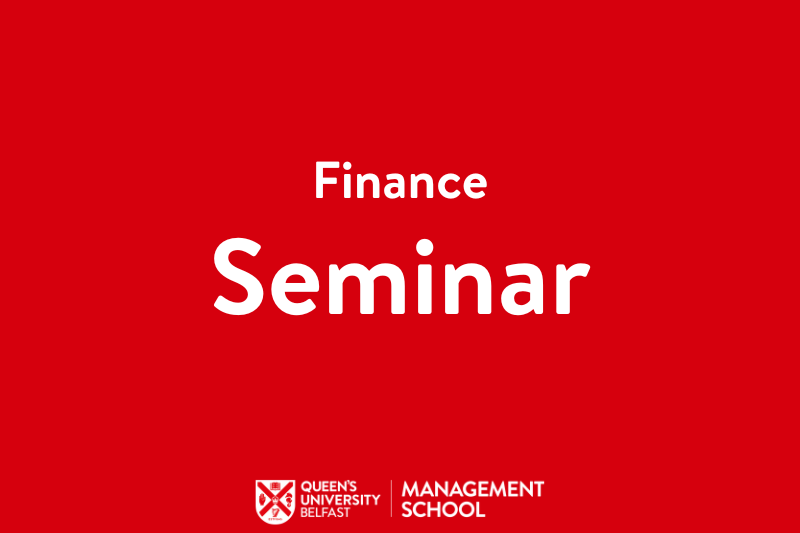- Date(s)
- October 25, 2023
- Location
- Queen's Business School, Conference Hub, Wheston Lecture Theatre 0G.028, Riddel Hall, 185 Stranmillis Road, Belfast BT9 5EE
- Time
- 13:00 - 14:00
|
QUEEN’S BUSINESS SCHOOL FINANCE SEMINAR SERIES
Wednesday 25th October 1pm
“The Hidden Impact of Private Money Creation on Stock Returns: Evidence from the FinTech Revolution”
Xing Han University of Auckland
Short Bio : Dr. Xing Han is a Senior Lecturer of Finance at the University of Auckland Business School. His current research interest lies in the areas of empirical asset pricing, behavioral financial, and FinTech. Xing has published in Critical Finance Review, Financial Management, Journal of Empirical Finance, Journal of Economic Dynamics and Control, and Energy Economics. He has been the recipient of multiple external and internal research grants and awards, and presented his work extensively at international academic conferences including annual meetings of the Financial Management Association International (FMA), the European Financial Management Association (EFMA), the Royal Economics Society (RES), the German Finance Association (DGF), and the New Zealand Finance Meeting (NZFM). Xing obtained his PhD degree from Ghent University, Belgium. He is a Chartered Financial Analyst.
Abstract: Private money creation in the form of money market funds exerts its hidden impact on stock returns via the “dual-market clientele”—a subset of investors who systematically exploit the distinctive features of cash investing as opposed to stock investing. This clientele-based channel has the power to explain the stylized seasonality: Long-short anomaly strategies that buy non-speculative stocks and sell speculative stocks experience low Monday-through-Wednesday returns and high Thursday-through-Friday returns. Identification relies on the FinTech revolution on cash investing, which we show that the seasonal cross-sectional return predictability is amplified by more than 100 percent following the shock to dual-market clientele’s market participation. The enlarged return predictability comes from the short-leg speculative stocks, and is stronger in high volatility and uncertainty periods.
|
- Department
-
Queen's Business School
- Add to calendar
